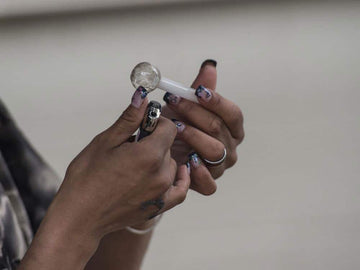In recent years, the UK has witnessed a dramatic surge in vaping, particularly among young people. This trend, coupled with the alarming rise of fake THC vape juice that’s actually spice, has raised significant health concerns. The accessibility of vapes and drugs through social media platforms like Snapchat and Instagram has made it easier than ever for young users to experiment with substances that can have devastating effects.
The Boom in Vaping Among Young People
Vaping has exploded in popularity among adolescents, with many viewing it as a safer alternative to smoking traditional cigarettes. The appeal lies not only in the wide variety of flavors but also in the perception that vaping is less harmful. However, this perception is misleading. The rise of e-cigarettes has opened the door for a new generation of users, many of whom are unaware of the risks associated with vaping, particularly when it comes to unregulated products.
The Role of Social Media
Social media platforms have played a pivotal role in the normalization of vaping and drug use among young people. Apps like Snapchat and Instagram serve as marketplaces where users can easily find and purchase vaping products, including counterfeit THC vape juices. The anonymity and convenience of these platforms make it easy for young people to access substances that they may not have considered before. Influencers and peers often glamorise vaping, further entrenching its appeal among youth.
The Emergence of Fake THC Vape Juice
In this landscape, a concerning trend has emerged: the proliferation of cheap fake THC vape juices that are, in reality, synthetic cannabinoids like spice. Marketed as a legal high, spice is a synthetic drug designed to mimic the effects of THC, the main psychoactive compound in cannabis. However, spice is often much more potent and unpredictable, leading to severe psychological and physiological effects.
The History of Spice
Spice, also known as K2, first gained popularity in the mid-2000s as a legal high, marketed under various brand names. It was sold in head shops and online, often marketed as “herbal incense.” As awareness of its dangers grew, governments worldwide began to outlaw its sale, leading to the emergence of new synthetic cannabinoids designed to evade legal restrictions. In the UK, spice has become synonymous with chaos and despair, particularly within the prison system, where it is notoriously difficult to control.
Spice in UK Prisons
The prevalence of spice in UK prisons has reached alarming levels. Incarcerated individuals often turn to synthetic cannabinoids as a means of coping with the harsh realities of prison life. The drug's availability in these environments has led to significant challenges for prison staff, with reports of increased violence, self-harm, and medical emergencies linked to spice use. The drug's unpredictable nature means that users can experience severe side effects, including paranoia, hallucinations, and violent behaviour.
The Impact on Young People
The consequences of spice and fake THC vape juice extend far beyond the prison walls. Young people are increasingly finding themselves in perilous situations due to their experimentation with these substances. Reports of drug overdoses have surged, often linked to the consumption of fake THC vape juices. The health implications can be dire, with many users experiencing severe anxiety, psychosis, and other mental health issues that can persist long after the drugs have worn off.
The Overdose Crisis
The increase in overdoses among young people is a stark reminder of the dangers associated with synthetic drugs. Unlike natural cannabis, which has a well-documented safety profile, synthetic cannabinoids can lead to life-threatening situations. The lack of regulation and quality control in the production of these substances means that users often have no idea what they are consuming or how it will affect them.
The rise of vaping among young people, compounded by the availability of fake THC vape juice and synthetic cannabinoids like spice, presents a significant public health crisis in the UK. As young people continue to experiment with these dangerous substances, it is crucial for parents, educators, and policymakers to address the issue head-on. Education and awareness campaigns are essential to inform young people of the risks associated with vaping and synthetic drugs, helping them to make safer choices and ultimately protect their health and wellbeing. The time to act is now, before the epidemic escalates further and more young lives are put at risk.





